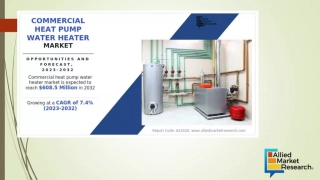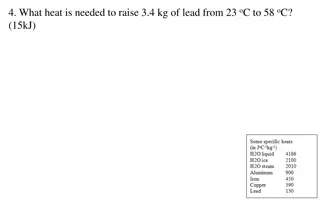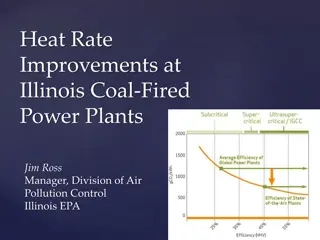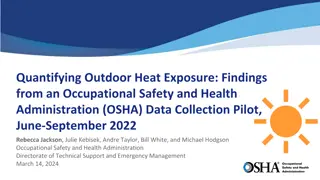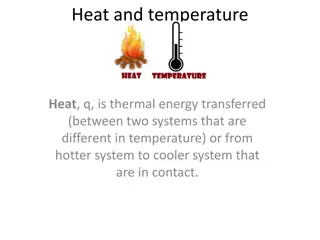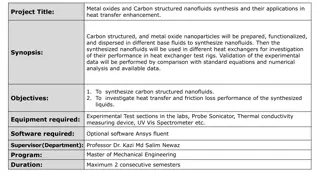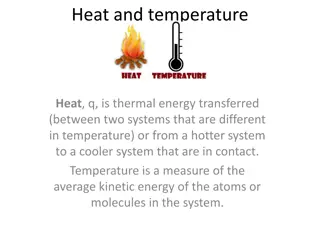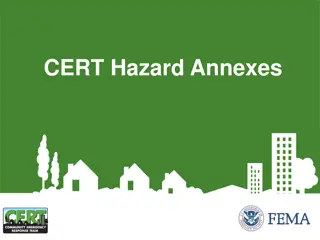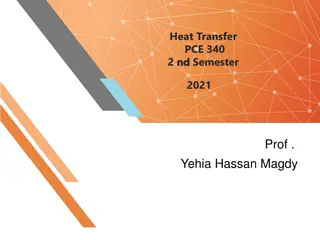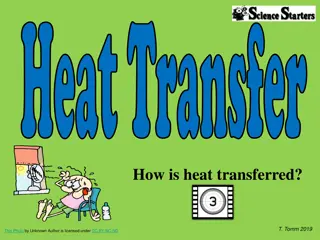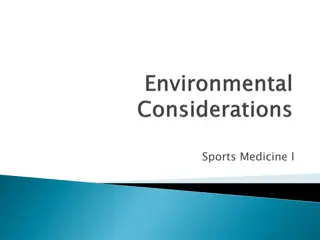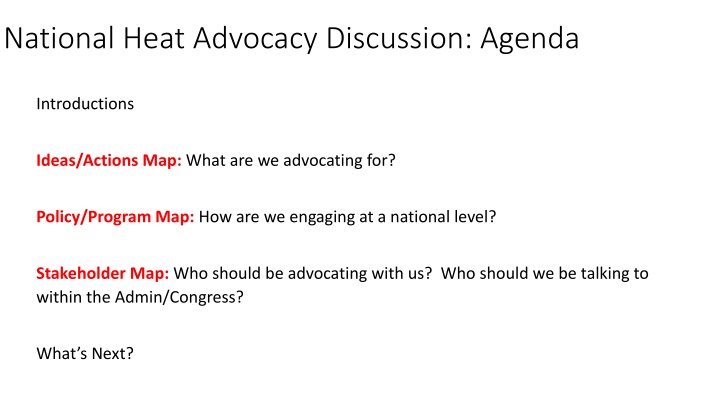
National Heat Advocacy Discussion: Action Agenda
Advocates from various sectors discuss advocating for heat resilience at a national level, focusing on funding, procurement, and policy engagement. Stakeholders share insights and actions to address heat impacts.
Download Presentation

Please find below an Image/Link to download the presentation.
The content on the website is provided AS IS for your information and personal use only. It may not be sold, licensed, or shared on other websites without obtaining consent from the author. If you encounter any issues during the download, it is possible that the publisher has removed the file from their server.
You are allowed to download the files provided on this website for personal or commercial use, subject to the condition that they are used lawfully. All files are the property of their respective owners.
The content on the website is provided AS IS for your information and personal use only. It may not be sold, licensed, or shared on other websites without obtaining consent from the author.
E N D
Presentation Transcript
National Heat Advocacy Discussion: Agenda Introductions Ideas/Actions Map: What are we advocating for? Policy/Program Map: How are we engaging at a national level? Stakeholder Map: Who should be advocating with us? Who should we be talking to within the Admin/Congress? What s Next?
Introductions What is your perspective on the current opportunity for heat resilience action at a federal level? Kathy Baughman McLeod (KBM) Adrienne Arsht Rockefeller Fdn Resilience Center at Atlantic Council global alliance focused on risk reduction of heat. Miami, CA engaged, climate/risk insurance (Ricardor Lara in CA) risk quanitification etc. Awareness raising by ranking and naming heat waves. Larry Kalkstein (LK) Applied Climatologists part of LA Urban Cooling Collaborative a research based look at heat and heat resilience measures (natural and solar reflective). Developed heat warning systems and working with KBM on heat wave ranking Brendan Shane (BS) Trust for Public Land Climate lead goal to expand urban greening and park space with an increased focus on heat impacts (implementation, research, and incorporation into ParkScore tool), lots of state and local advocacy, tying expanded urban greening to health, climate benefits Tom Stewart (TS) Trust for Public Land federal policy lead strong Hill background and experience. Significant opportunity but need to execute well Linda Rudolph (LR) Public Health Institute, Medical Consortium for Climate and Health (incl AMA and other societies). Developing a climate health and policy agendas on climate health and equity at HHS. Has met with Sr. Policy Director for Equity at HHS George Ban Weiss (GBW) USC prof of Civil and Enviro Eng heat modeling and observational studies of thermal comfort impacts of heat resilience measures (mostly in So Cal). Air pollution impacts (co-benefits and penalties)
Ideas/Actions Map What are we advocating for? Funding for comprehensive heat planning Heat resilient procurement language for infrastructure investments and service provision Executive Order to include climate and heat in every federal decision What state level bills/orders could be proposed at a federal level? Priority for smart surface investments KBM - Heat wave naming and ranking (looking for a meeting at agency/cabinet level - National Weather Service) Matches 4 agency priorities (jobs, climate response, equity, econ) LK exploring localization of heat wave naming KBM education and research, less lobbying KBM quantifying the economic costs of heat as best as possible to the U.S. economy LK exporting LAUCC research process (KC, Milwaukee, Madison, Miami, Cleveland) Updating heat warning systems to incorp heat health outcomes JRDS integrating responsibility for heat risk into the statutory mission of agencies. EPA, HUD, OSHA, Co-benefits of heat risk reduction in the context of agency targets but need a tailored approach to each Doing education and research, less lobbying Need methods for quantifying heat impacts that can be deployed and scaled globally BS Smart Surfaces is already engaging on the infrastructure discussion at a federal level. Booker bill Climate Stewardship Act urban tree canopy investment JP Laurie Schoeman at Enterprise Community Partners to refine outreach approach
Policy/Program Map How are we engaging at a national level? Priorities HHS is a key - heat is a huge source of risk for the agency Treasury/SEC - insurance companies are huge. Regulatory enviro around insurance and bonds/credit risk Heat on agenda for NIH, NSF, National Academies LR National Academies Climate Challenge pulling together some meetings on this issue TS Legislation need to consider whether our items are inherently budgetary or not, due to Reconciliation process (needs to be budgetary to move via Recon) JRDS - Need to frame as a bipartisan/non-partisan issue. Appeal to sensibilities across the political spectrum Thus, Markey bill will likely not be going anywhere.
Stakeholder Map Who should be with us? Who should we be talking to? Procurement specialists: Implementers: Kizzy Charles Guzman (NYC), Mark Hartman (PHX) EJ Voices: Sonal Jessel (WeACT) Education Voices: Jisung Park, Funders: Enterprise s Laurie Schulman https://resilience21.org HHS (priority for LR, JRDS) CDC/NIOSH Medicare/Medicaid Climate and Health Equity Office CEQ Mark Chambers, Cecilia Martinez at CEQ framing EJ issues there Labor EPA Interior USDA Transportation / FHWA NOAA OSHA for OSHA related activity, Public Citizen is a DC org that s been active on extreme heat. Reach out? Education Energy NIH, NSF, NAM
Next Steps / Save for Later Next Steps Thoughts to Revisit KBM let s form a heat lobby Info sharing or a deeper collaboration. Heat will be the #1 risk for insurance re-insurance etc. need a deep bench to help them understand heat risks Notes:

